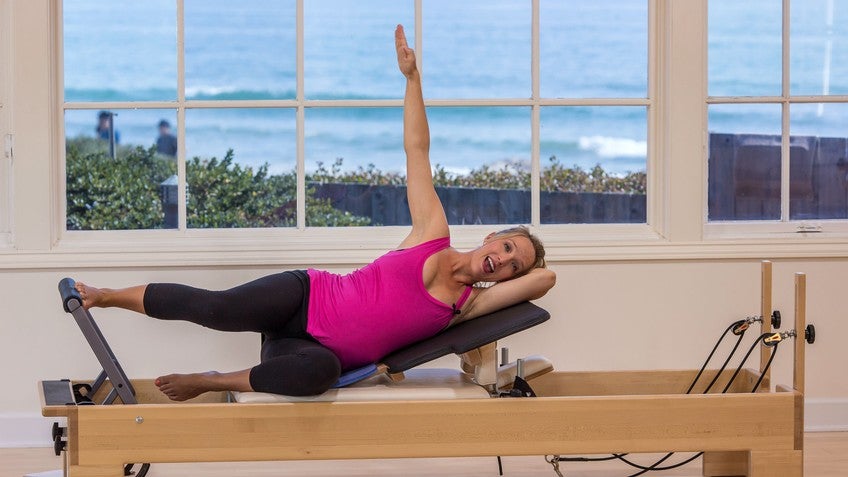The more you proceed with your pregnancy, you might undergo several emotional and physical changes. You might have to experience various challenges as a result of these changes. You may not just do some meditation and yoga to deal with these pregnancy discomforts, doing pilates may even help.
What is Pilates During Pregnancy?
Like any other prenatal yoga, prenatal pilates combines low–impact and breathing exercises that improve abdominal strength and stabilize the pelvic floor and central trunk muscles. Moreover, performing this exercise can help increase blood flow during pregnancy. Practising pilates in pregnancy focuses on the areas around your baby bump, thus maintaining the physical balance and keeping your body ready for your baby’s birth.
Benefits of Doing Pilates During Pregnancy
Pilates is a wonderful exercise and benefits you in several ways when you are expecting your baby, the benefits include:
Increased Muscle Strength
Due to your baby bump, your weight will add on in the front, and the centre of gravity may alter a little. You might lose your balance as you walk. You might feel cramps and pain near your abs and below them. Doing pilates can bring a solution to this. Doing pilates can keep your postural muscles – including the back, hamstring muscles, and glutes strong. Adding on to this, pilates makes sure that you stay in perfect balance during your pregnancy as you’re walking or standing or doing just little household chores.
Keeps Your Pelvic Floor Muscles Strengthened
Due to the fluctuating hormones and the weight of your growing baby, you can feel weak in your pelvic floor muscles. Doing pilates may support your bladder. Moreover, doing pilates during this time may save you from the risk of incontinence. This is the way you can keep your pelvic floor muscles strong as well as stretchy. As you reach the juncture of labour, doing this exercise can reduce the frequency of contractions.
Improves Breathing
Breathing plays a vital role in prenatal pilates classes. It helps in good air exchange which is beneficial for you and your baby in the womb. Breathing can keep your mind calm and reduce your stress level and anxiety. This way, you can keep your body oxygenated and energised. This also can improve your mood and promote relaxation.
Reduce Your Back Pain
As your uterus expands, it might be difficult for you to lie down on your back. Planks and forward-flexing abdominal exercises in pilates can increase intra-abdominal pressure, contributing to diastasis recti (abdominal separation) and additional pelvic floor pressure.
Reduce Strain When You Get In & Out of Your Bed
Some of the comfortable and safe positions, like including 4 point arm lift and 4-point leg extension, may put less pressure on your pelvis as well as your lower back.
Helps in Maintaining Your Weight
Gaining weight during pregnancy is quite natural. But, performing pilates like doing the “Cat-camel exercise” is a great way to maintain your weight. In fact, this is a way good way to keep your spine movement smooth and abdominal muscles flexible during pregnancy.
Keeps Your Legs Strong
While you’re carrying your baby in your womb, you will tend to experience leg cramps, develop varicose veins and feel fluid retention. Besides the other pilates exercises, do a supported squat exercise with a ball to keep your abdominal muscles strong.
Well! Before you start including pilates exercises in your pregnancy regime, always consult your doctor, and don’t forget to take reference from an expert. After all, you are nurturing a beautiful life inside and your little one’s health and well-being are your biggest concern.
Here’s how you can stay safe while doing pilates exercises during pregnancy:
- Since this is a strength-building exercise, ensure that you aim at including at least 2 sessions of pilates per week.
- Be mindful while you are breathing.
- Keep your movements gentle, slow, and steady which will allow you to stay comfortable.
- Ensure that you do not jump or bounce a lot while performing pilates.
- Ensure that you do not suddenly change your position as it may not impact your pregnancy positively.
For more information on pregnancy, postpartum, baby care and the benefits of cord blood banking follow our blog page.



